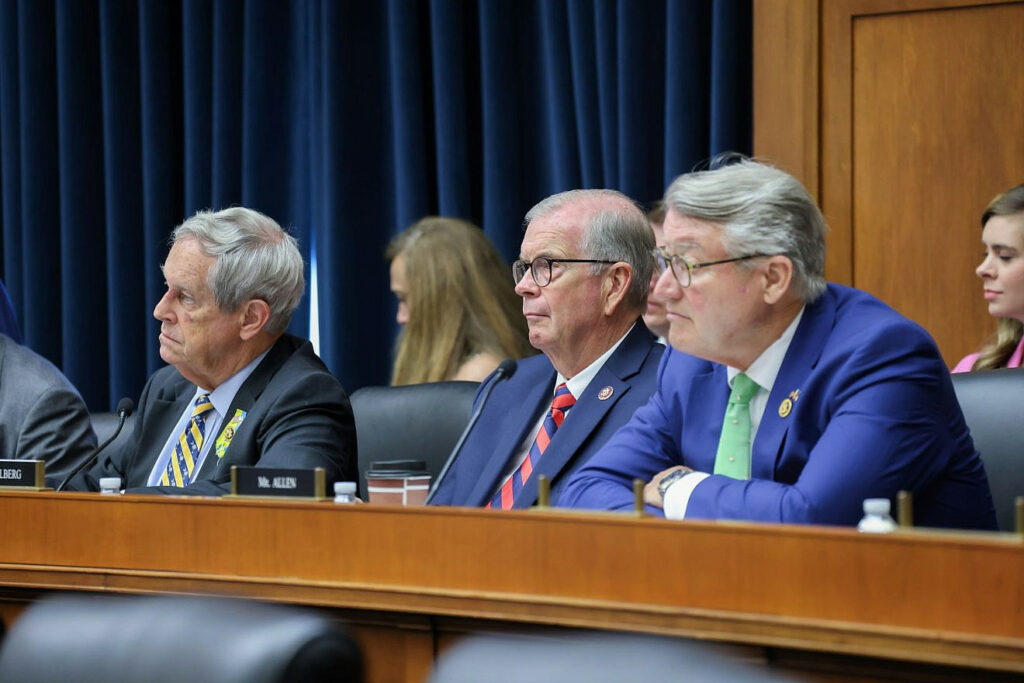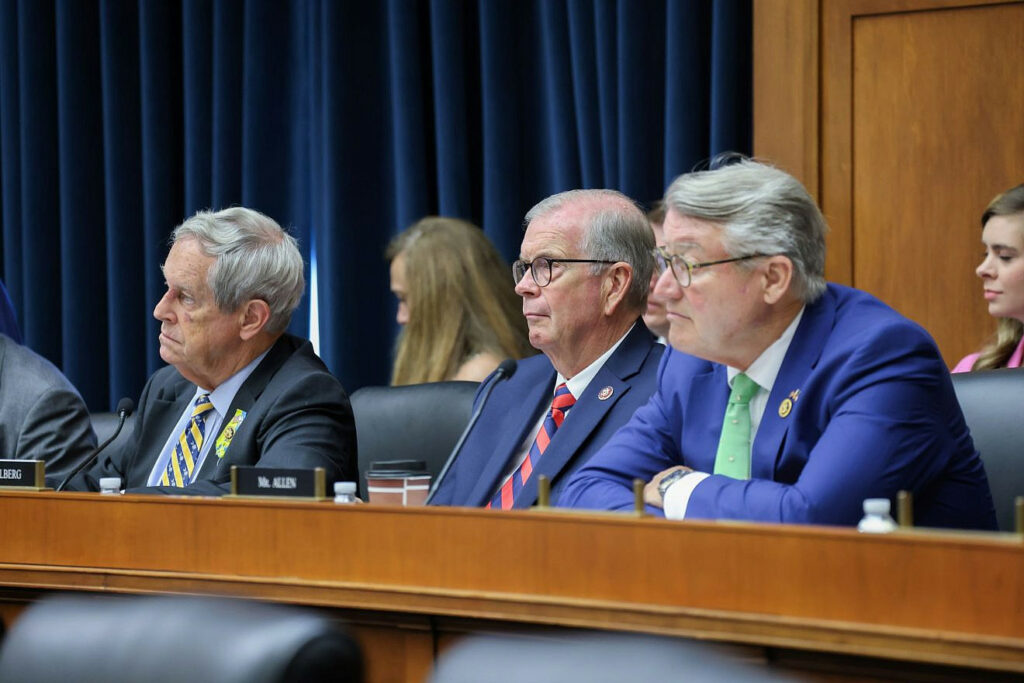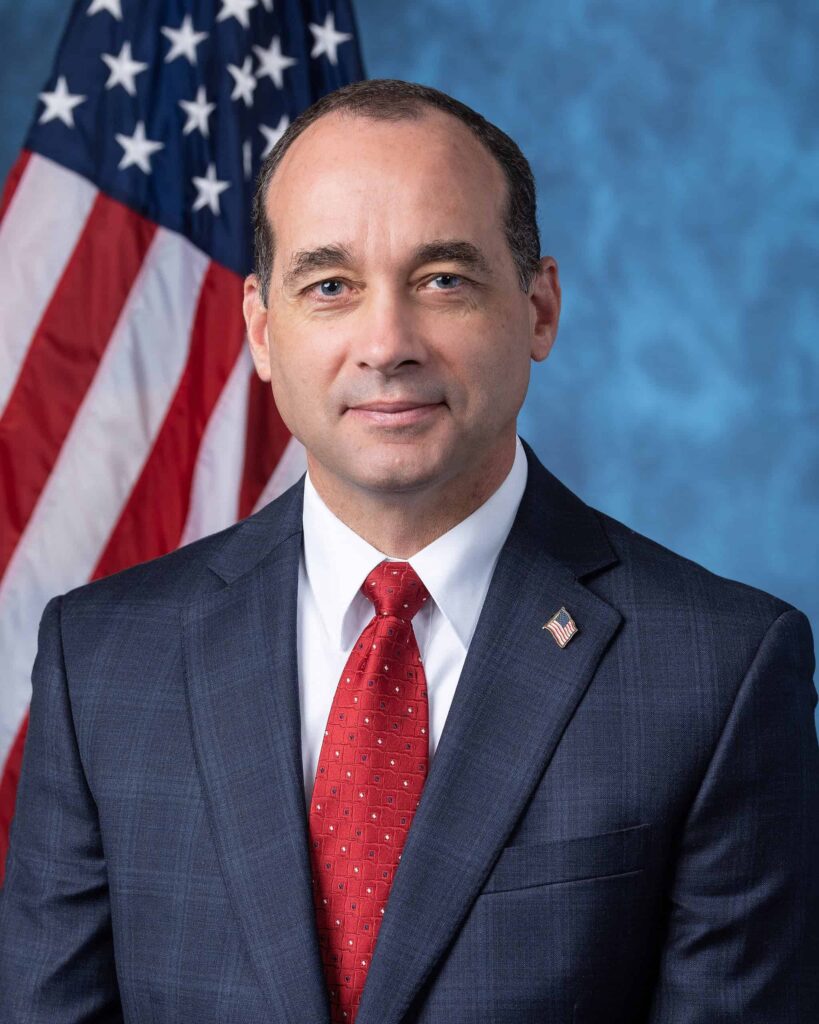
House subcommittee hears testimony about Jew-hatred in labor unions
“They spend all their time protesting against Israel,” an MIT doctoral student and United Electrical Workers Local 256 member testified before Congress.
U.S. labor unions are discriminating against Jews and devoting an alarming amount of time and resources to protesting against Israel, witnesses told a subcommittee of the House Committee on Education and the Workforce.
William Sussman, a Massachusetts Institute of Technology doctoral student, testified before the Subcommittee on Health, Employment, Labor and Pensions on Tuesday about how the nexus between student unions and organized labor is creating a discriminatory environment for Jewish student-employees like him by embracing the boycott, divestment and sanctions movement.
“The MIT Graduate Student Union, known as the GSU, has engaged in BDS since its inception,” Sussman said. “It’s one of the reasons they chose to affiliate with the United Electrical Workers (UE), which ‘endorses the BDS movement and urges the union at all levels to become engaged in BDS.’”
Sussman sued the UE successfully, alleging that it was violating his rights under U.S. law to opt out of paying dues for the union’s political activities—known as Beck rights, after the 1988 U.S. Supreme Court case Communications Workers of America v. Beck.
Despite the successful suit, Sussman testified that the UE has yet to change its illegal tactics, and the National Labor Relations Board closed his case.

Rather than protect Jewish members or usefully negotiate wage disputes, the UE focuses entirely on Gaza, Sussman alleged. “They spend all their time protesting against Israel,” he said.
Although they have names that suggest industrial work, labor unions like the UE and the United Auto Workers increasingly draw membership from students and faculty at elite universities.
Glenn Taubman, a staff attorney at the National Right to Work Legal Defense Foundation, told the subcommittee that unions abuse legal protections, which are designed to help negotiate labor contracts, to advocate radical student politics.
“Unions have a unique privilege in this country—the privilege of demanding other people’s money, which they can then go use on all of these sorts of far-left, intersectional, woke politics,” he said.
“It’s a lot more fun to go run around and riot on behalf of Hamas than it is to say, ‘Let’s do a workplace grievance and see if we can get better wages in this place,’” he testified. “That’s boring. That’s work.”
Since Oct. 7, Taubman has been inundated with requests from distraught union members trying to dissociate themselves from the anti-Israel positions of their unions, he told the congressmen.
“It is heartbreaking for me as a Jewish-American, and as a Zionist, to have my phone ringing off the hook every single day since Oct. 7, by students, workers, teachers, legal aid lawyers, doctors, saying, ‘How do I get out of this?’” he said. “‘I am surrounded by vicious people attacking me as a Jew, attacking me as a Zionist.’”

Taubman told the subcommittee that unfortunately he can’t tell the people who call him to exercise their constitutional rights and exit the union, because in many states, they would lose their jobs.
“Under the National Labor Relations Act, they cannot get out,” he said.
‘An unfair labor practice problem’
Anne Marie Lofaso, a law professor at West Virginia University, testified that discrimination against Jews in employment and labor unions is already illegal. The bigger problem is a lack of resources to enforce existing law, she said.
“What the committee seems to be focusing on is the stuff that’s already regulated and has remedies, instead of what the real problem is, which is getting remedies for an unfair labor practice,” she said. “Mr. Sussman had an unfair labor practice problem. That’s the real problem.”
“If the union said that he had to join them, they were wrong and they violated the law, and they should be prosecuted,” she added.
Some Democrats also argued that the presence of Jew-hatred in organized labor did not justify tossing out the entire collective bargaining system.
In one of the few heated exchanges during the hearing, Rep. Donald Norcross (D-N.J.) traded barbs with the subcommittee chairman Rep. Bob Good (R-Va.), who recently lost the Republican primary in Virginia’s 5th District.

(source: JNS)
Norcross said that “a few bad actors” didn’t mean that unions are antisemitic.
“You can call Republicans ‘racist.’ You can call Democrats ‘socialists.’ That doesn’t make it true,” Norcross said. “If we look back through history, we certainly did have racists that served in this House.”
Good interrupted Norcross’s five minutes of speaking time. “I thought maybe you were talking about the Democrats and the KKK,” he said.
“No. I’m taking back my time,” Norcross responded. “You’re done. In more than one way.”
The post House subcommittee hears testimony about Jew-hatred in labor unions appeared first on Israel365 News.
Israel in the News